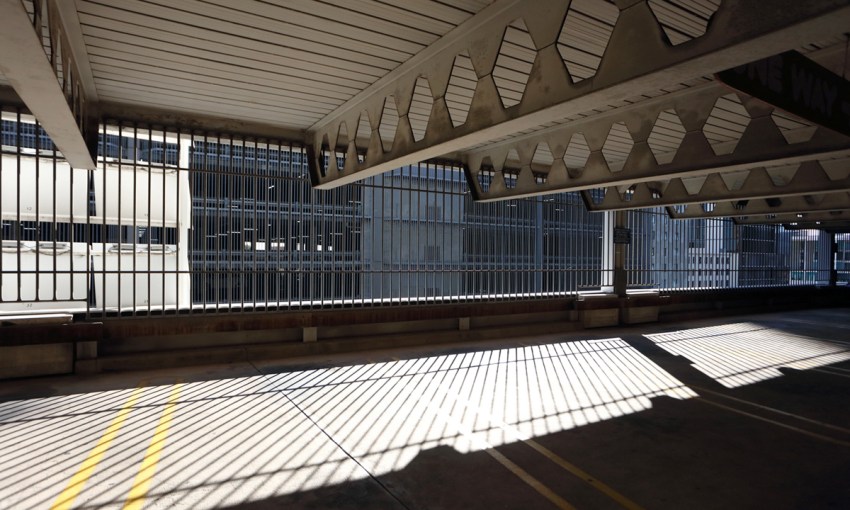Councillors this week supported a month-long free parking scheme expected to cost the council $300,000, but several urban planners tell CityMag the initiative is unlikely to increase city patronage and contradicts the council's carbon reduction goals.
City councillors support a new car-centric transport incentive to boost visitation
At an Adelaide City Council meeting this week, members unanimously supported a program titled ‘Reignite the City’.
Recommended by the administration, and detailed in the latest agenda, the push aims to “deliver cost savings and generate income for local businesses by creating compelling reasons to come back to the city.”
The package includes a raft of measures leveraged by council designed to give the postcode 5000 and its businesses an economic injection.
This includes creating more green and inviting outdoor spaces for hospitality businesses, waving permit and development applications fees for temporary activations, and waving two months of fees for personal trainers operating in the city’s parklands and squares.
The package also details a Friday Night Live music program to attract employees back into the city at the end of the week, and a quick-response grant program offering $10,000 to events affected by the coronavirus.
A City of Adelaide spokesperson told CityMag up to five events in the city were cancelled due to the recent lockdown.
While all this sounds rosy, councillor Helen Donovan contested the one-month free UPark parking in the city detailed in the package, with the councillor saying “I absolutely shake my head” at the suggestion.
“Parking is not a mediator or moderator. It does not lead to visitation of the city,” she said.
“What we know is that it increases the number of people who choose to drive.”
If implemented, the free parking measure would see the council-owned UParks made free between 6pm and midnight for people signed up to the UPark Plus app.
CityMag asked the City of Adelaide when the initiative is expected to be rolled out but we have not received a response.
Many councillors advocated for the initiative, with Councillor Jessy Khera — the brain behind Drivers’ Month — saying “the car parking issue has been spoken [about] enough” and driving “is a reality” and “how things operate”.
Although Councillor Hyde said the initiative is “maybe bad for emissions”, it would aid those using vehicles accessing the city.
—Andrew Allan
According to a report by the administration, the City of Adelaide is expected to lose $300,000 UPark revenue through the scheme.
Finders University lecturer in urban geography and urban and regional planning, Gerti Szili, tells CityMag that although the CBD suffered immensely in the wake of COVID-19 and recent restrictions, “I’m not really convinced that offering free parking is the way to [bring people back]”.
“They’ve tried this in other cities in Australia and certainly overseas, and I don’t think it’s actually proven to bring revenue that’s been lost back to the city,” she says.
Szili also says this move “flouts” the City of Adelaide’s own ambitions to become one of the world’s the first carbon neutral cities.
“We know that emissions from transport are one of the biggest contributors to GHG (greenhouse gas) emissions,” Szili says.
“So to meet the targets that the council had set for themselves, I don’t think it’s a particularly smart idea to to encourage people to drive to the city and then take up that free parking offer.”
Urban and regional planning senior lecturer at the University of Adelaide, Andrew Allan, expressed similar skepticism about the efficacy of the proposal, saying, “I was a little bit surprised the council thinks that might work.”
“I don’t know if it’s going to make a huge difference. Doubling of patronage is not likely,” he says.
“I was around the city yesterday, and people seemed nervous about being in public; they’re wearing their masks, which I think they’re required to do. So until things settle down with that, it may not be enough to actually bring people in.”
Allan believes the council should consider a more inclusive transport strategy, which is “not just about the motorists” and caters to pedestrians, public transport-users and cyclists.
“We just had the the IPCC, the Intergovernmental Panel on Climate Change, saying we really have to do something drastic to reduce carbon emissions, which means looking at transport,” he says.
“We should not be saying, ‘Oh, jump in your car’ — unless it’s an electric car — and, ‘You’re welcome to drive as much as you like in the city and to do those things that people like doing in the city’.”
—Scott Hawken
Scott Hawken is the University of Adelaide’s Director of Planning and Urban Design, and similarly tells CitMag the initiative is a “sugar hit” and may only work temporarily.
“We really need to build the economy with a longer-term perspective,” he says.
“Other cities have been using the COVID disaster and disruption to develop new habits and really to nurture new kinds of activities in the city that are perhaps going to be more resilient.”
He says larger international cities such as London and Paris, as well as our interstate sister Melbourne, have focussed on “creating local centres of activity”.
This means establishing specialised local markets linked with certain neighbourhoods, leading individuals to explore different parts of the city, and thus “different types of economy within the CBD.”
Hawken said these attractions, however, should have been implemented well before the pandemic.




